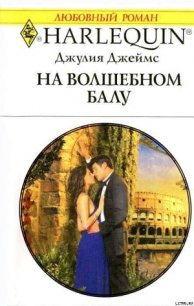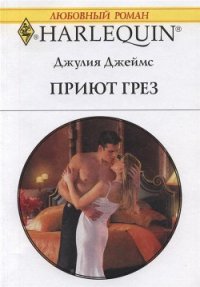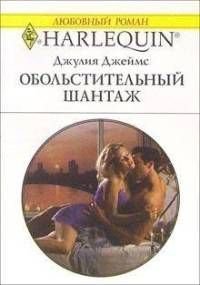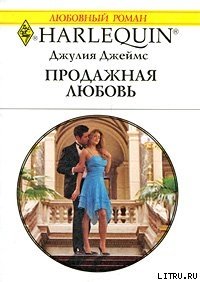Julia Ward Howe - Richards Laura E. (бесплатная регистрация книга TXT) 📗
This wolf will freeze at home!
While she was pouring out her heart in poem and play, and the Doctor was riding the errands of the hour and binding up the wounds of Humanity, what, it may be asked,—it was asked by anxious friends,—was becoming of the little Howes? Why, the little Howes (there were now five, Maud having been born in November, 1854) were having perhaps the most wonderful childhood that ever children had. Spite of the occasional winters spent in town, our memories centre round Green Peace;—there Paradise blossomed for us. Climbing the cherry trees, picnicking on the terrace behind the house, playing in the bowling-alley, tumbling into the fishpond,—we see ourselves here and there, always merry, always vigorous and robust. We were also studying, sometimes at school, sometimes with our mother, who gave us the earliest lessons in French and music; more often, in those years, under various masters and governesses. The former were apt to be political exiles, the Doctor always having many such on hand, some learned, all impecunious, all seeking employment. We recall a Pole, a Dane, two Germans, one Frenchman. The last, poor man, was married to a Smyrniote woman with a bad temper; neither spoke the other's language, and when they quarrelled they came to the Doctor, demanding his services as interpreter.
Through successive additions, the house had grown to a goodly size; the new part, with large, high-studded rooms, towering above the ancient farmhouse, which nevertheless seemed always the heart of the place. Between the two was a conservatory, a posy of all sweet flowers: the large greenhouse was down in the garden, under the same roof as the bowling-alley.
The pears and peaches and strawberries of Green Peace were like no others that ever ripened; we see ourselves tagging at our father's heels, watching his pruning and grafting with an absorption equalling his own, learning from him that there must be honor in gardens as elsewhere, and that fruit taken from his hand was sweet, while stolen fruit would be bitter.
We see ourselves gathered in the great dining-room, where the grand piano was, and the Gobelin carpet with the strange beasts and fishes, bought at the sale of the ex-King Joseph Bonaparte's furniture at Bordentown, and the Snyders' Boar Hunt, which one of us could never pass without a shiver; see ourselves dancing to our mother's playing,—wonderful dances, invented by Flossy, who was always premiere danseuse, and whose "Lady Macbeth" dagger dance was a thing to remember.
Then perhaps the door would open, and in would come "Papa" as a bear, in his fur overcoat, growling horribly, and chase the dancers into corners, they shrieking terrified delight.
Again, we see ourselves clustered round the piano while our mother sang to us; songs of all nations, from the Polish drinking-songs that Uncle Sam had learned in his student days in Germany, down to the Negro melodies which were very near our hearts.
Best of all, however, we loved her own songs: cradle-songs and nursery nonsense made for our very selves—
"(Sleep, my little child.
So gentle, sweet and mild!
The little lamb has gone to rest,
The little bird is in its nest,—"
"Put in the donkey!" cries Laura. The golden voice goes on without a pause—
"The little donkey in the stable
Sleeps as sound as he is able;
All things now their rest pursue,
You are sleepy too!)"
Again, she would sing passionate songs of love or battle, or hymns of lofty faith and aspiration. One and all, we listened eagerly; one and all, we too began to see visions and dream dreams.
Now and then, the Muse and Humanity had to stand aside and wait while the children had a party; such a party as no other children ever had. What wonder, when both parents turned the full current of their power into this channel?
Our mother writes of one such festival:—
"My guests arrived in omnibus loads at four o'clock. My notes to parents concluded with the following P.S.: 'Return-omnibus provided, with insurance against plum-cake and other accidents.' A donkey carriage afforded great amusement out of doors, together with swing, bowling-alley, and the Great Junk. While all this was going on, the H.'s, J. S., and I prepared a theatrical exhibition, of which I had made a hasty outline. It was the story of 'Blue Beard.' We had curtains which drew back and forth, and regular footlights. You can't think how good it was! There were four scenes. My antique cabinet was the 'Blue Beard' cabinet; we yelled in delightful chorus when the door was opened, and the children stretched their necks to the last degree to see the horrible sight. The curtain closed upon a fainting-fit done by four women. In the third scene we were scrubbing the fatal key, when I cried out, 'Try the "Mustang Liniment"! It's the liniment for us, for you know we must hang if we don't succeed!' This, which was made on the spur of the moment, overcame the whole audience with laughter, and I myself shook so that I had to go down into the tub in which we were scrubbing the key. Well, to make a long story short, our play was very successful, and immediately afterward came supper. There were four long tables for the children; twenty sat at each. Ice-cream, cake, blanc-mange, and delicious sugar-plums, oranges, etc., were served up 'in style.' We had our supper a little later. Three omnibus loads went from my door; the last—the grown people—at nine o'clock."
And again:—
"I have written a play for our doll-theatre, and performed it yesterday afternoon with great success. It occupied nearly an hour. I had alternately to grunt and squeak the parts, while Chev played the puppets. The effect was really extremely good. The spectators were in a dark room, and the little theatre, lighted by a lamp from the top, looked very pretty."
It was one of these parties of which the Doctor wrote to Charles Sumner: "Altogether it was a good affair, a religious affair; I say religious, for there is nothing which so calls forth my love and gratitude to God as the sight of the happiness for which He has given the capacity and furnished the means; and this happiness is nowhere more striking than in the frolics of the young."
Among the plays given at Green Peace were the "Three Bears," the Doctor appearing as the Great Big Huge Bear; and the "Rose and the Ring," in which he played Kutasoff Hedzoff and our mother Countess Gruffanuff, while John A. Andrew, not yet Governor, made an unforgettable Prince Bulbo.
It was a matter of course to us children, that "Papa and Mamma" should play with us, sing to us, tell us stories, bathe our bumps, and accompany us to the dentist; these were things that papas and mammas did! Looking back now, with some realization of all the other things they did, we wonder how they managed it. For one thing, both were rapid workers; for another, both had the power of leading and inspiring others to work; for a third, so far as we can see, neither ever wasted a moment; for a fourth, neither ever reached the point where there was not some other task ahead, to be begun as soon as might be.
Life with a Comet-Apostle was not always easy. Some one once expressed to "Auntie Francis" wonder at the patience with which she endured all the troublesome traits of her much-loved husband. "My dear," she replied, "I shipped as Captain's mate, for the voyage!"




